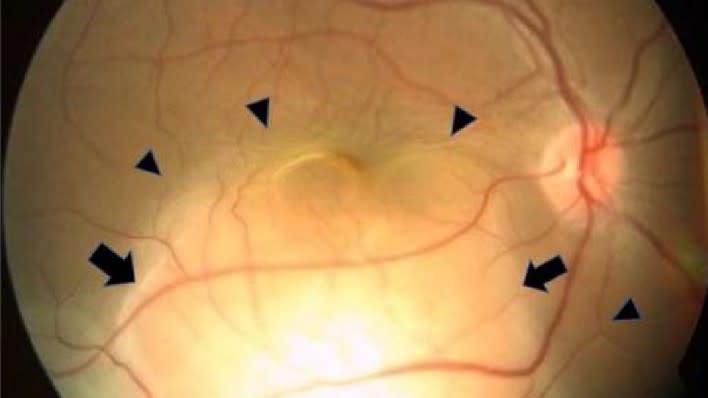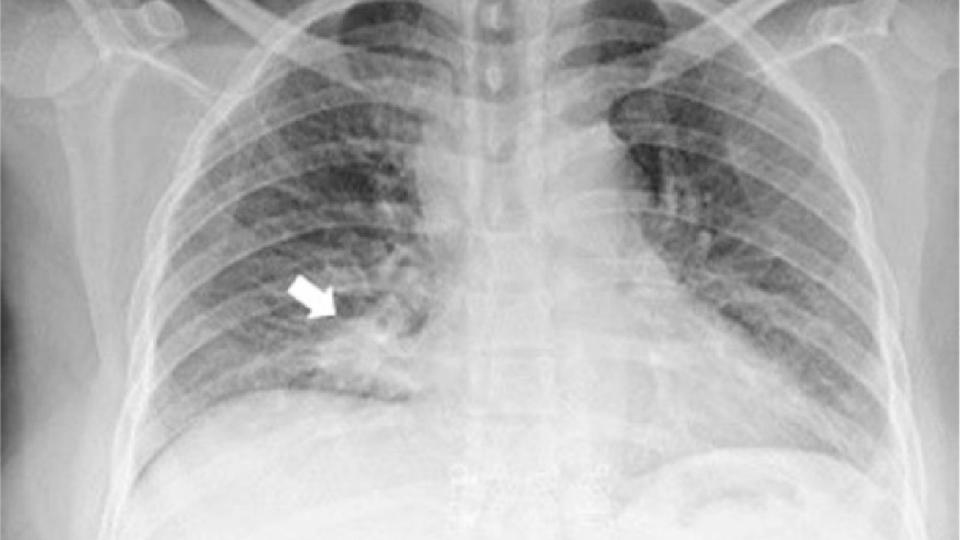Woman's sudden blindness in 1 eye revealed hidden lung cancer

In an extremely rare case, a woman's sudden blindness in one eye turned out to be the first symptom of undiagnosed lung cancer that had spread throughout her body.
The woman first sought medical attention after losing vision in her right eye and experiencing occasional flashes of light in her left eye for around 20 days. She was 32 years old at the time and otherwise healthy, with no other symptoms and no history of smoking.
During an initial eye exam at the hospital, doctors determined her eyes looked healthy. They were not painful or red and the eye's key structures appeared intact — the lens was clear, and the pupil and iris, or colored part of the eye, didn't show noticeable abnormalities.
However, upon closer inspection, doctors saw that there was a large, whitish-yellowish mass growing in the back of her right eye. Fluid had also accumulated under her retina, the light-sensitive part of the eye, causing it to detach. There was a similar, smaller lesion in her left eye, but its retina was still intact.
Related: Healthy tissue may predict lung cancer return better than tumors
To determine what caused these masses to appear, doctors checked the woman's blood. They found that she had no signs of an active viral infection or blood disorder, as her red blood cell and immune cell counts were normal. She was didn't have an human immunodeficiency virus (HIV) infection or an autoimmune disease, both of which can make people more vulnerable to vision loss and changes.
Finally, a chest X-ray and whole-body scan revealed the culprit — a mass of cancerous tissue growing in the lower part of the woman's right lung. This tumor had spread to multiple other organs, including part of the eyes called the choroid.
Cancer that develops in one part of the body then spreads to another is called metastatic cancer. Most of the time when cancer spreads to the eyes, the migrating tumors lodge themselves into the choroid. However, this rarely occurs in lung cancers, which only migrate to the eyes in around 0.1% to 7% of cases.

It's even rarer for patients to experience visual impairment as the first sign of underlying lung cancer. So far, there have only been around 60 such cases described in the medical literature. The woman's case is even more unusual because she didn't smoke, and cigarette smoking is linked to a large proportion of lung cancer cases.
The doctors who treated the woman believe her case could be the first example of a non-smoking woman of her age developing visual impairment as the first symptom of lung cancer. The woman likely had a distinct subset of lung cancer that can spread without causing telltale symptoms of metastasis, the doctors wrote in a report of her case, published April 17 in the journal Radiology Case Reports.
RELATED STORIES
—Millions more people need lung cancer screening, ACS says
—Lung cancer pill drastically cuts risk of death after surgery
—There may be a link between coffee and lung cancer, study suggests
After her cancer was spotted, the woman was referred to an oncologist for treatment; the case report did not note how she's faring now.
More research is needed to ensure that this seemingly specific type of lung cancer is promptly diagnosed and treated in other people, the doctors wrote in the report.
This article is for informational purposes only and is not meant to offer medical advice.
Ever wonder why some people build muscle more easily than others or why freckles come out in the sun? Send us your questions about how the human body works to community@livescience.com with the subject line "Health Desk Q," and you may see your question answered on the website!

